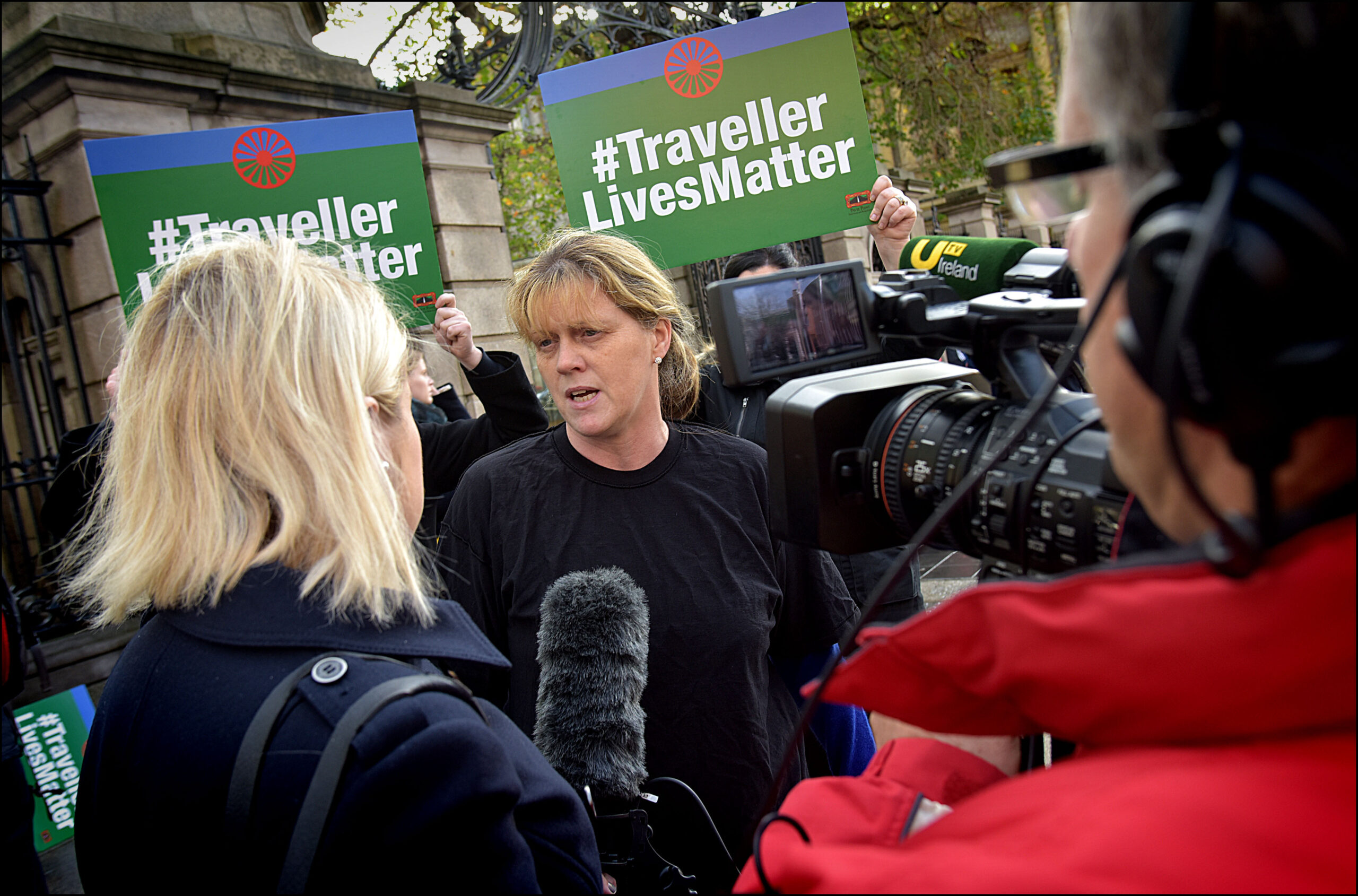People can experience direct discrimination and indirect discrimination. Direct discrimination consists of verbal abuse and refusals of service, for example. Indirect discrimination consists of a policy, practice or rule that results in poorer outcomes for a minority group.
“Who experiences discrimination in Ireland? Evidence from the QNHS Equality Modules” was published jointly by the Irish Human Rights and Equality Commission and the Economic and Social Research Institute in 2017.
According to this report Irish Travellers experience:
■ very high rates of discrimination in seeking work, where they are 10 times more likely than White Irish to experience discrimination
■ extremely high rates of discrimination in private services, where they were over 22 times more likely to report discrimination, particularly in shops, pubs and restaurants
‘Our Geels’ The All Ireland Traveller Health Study, 2010 reported:
■ 53% of Travellers “worried about experiencing unfair treatment”
■ Over 50% of Travellers experienced discrimination in their daily lives
■ 40% of Travellers experienced discrimination in accessing health services, compared to 17% of Black Americans and 14% of Latino Americans (Krieger et. al. 2005)
Targeted actions within the mainstream
Equality and anti-racism is not just about legal redress. We have seen in our work that to achieve equality it is necessary to have specific supports that will promote Traveller & Roma inclusion. We view Traveller inclusion within the mainstream as requiring targeted actions such as outreach measures or positive action measures.
One of the approaches supported by Pavee Point was the Traveller Internship Programme in the Civil Service which took place. A further internship scheme across various government departments began in 2022.
National Action Plan Against Racism
Pavee Point lobbied for the first National Action Plan Against Racism 2004 – 2008. We also lobbied for a renewed plan.
In 2023 a new National Action Plan Against Racism (NAPAR) was announced and 1 million in funding was set aside for Ireland Against Racism Fund. Pavee Point has welcomed the plan and acknowledged it is an ambitious plan. We also welcomed the clear and early mention of Travellers as being directly covered by all provisions and recommendations in the plan.
In 2024, the National Action Plan Against Racism Advisory Group was established, which Pavee Point Co-Director, Martin Collins has been appointed a member of. The group is tasked with monitoring and helping to progress the implementation of the National Action Plan Against Racism (NAPAR) 2023-2027.
Ethnic Data Collection
Another element essential to equality, from our point of view, is the collection of data on ethnicity. We have argued that without reliable data it is difficult to assess situations on the ground and identify needs or areas of discrimination.
We are in favour of data collection within a human rights framework and we acknowledge the need for safeguards to be built into protect against the inappropriate use of data.
Pavee Point worked closed with the Central Statistics Office to ensure a question on ‘cultural background’ in the 2006 Census. This was then developed into a question on ethnicity with a wider range of ethnic groups listed on the form.
In recent years we have seen data on ethnicity being collected in the education setting and health settings. The National Traveller & Roma Inclusion Strategy recognises the need for data on ethnicity and in 2022 we began working with the government on the Public Service Data Strategy.
Laws and International Conventions
Pavee Point was very involved in lobbying for anti-discrimination legislation in the 1990s. Travellers are a named group in Employment Equality Acts.
The main piece of legislation to protect groups from discrimination in the provision of goods and services is the Equal Status Act 2002.
Travellers are also a named group under the 1989 Incitement to Hatred Act, which is currently being updated by the Oireachtas. The Criminal Justice (Incitement to Violence or Hatred and Hate Offences) Bill is due to come into law in autumn 2023.
Ireland is a signatory to the UN Convention on the Elimination of Racial Discrimination and is examined under this convention every 5 years. Pavee Point also provides shadow reporting to this committee and updates on the status of Travellers and Roma.
Public Sector Duty
Section 42 of the Irish Human Rights and Equality Commission Act 2014 says that a public body must, in the performance of its functions, have regard to the need to: Promote equality of opportunity and treatment of its staff and the persons to whom it provides services
Protect the human rights of its members
This Duty applies across all functions of the public body and is an ongoing responsibility that should be part of the public body’s strategic plan.
Pavee Point welcomed the establishment of the Irish Human Rights and Equality Commission in 2014 and has worked with the commission on various issues over the years. In 2022 IHREC invoked its powers to carry out an equality review of local authority Traveller Accommodation Programmes.
This review found that Travellers were in reality being forced into social housing as Traveller accommodation was overcrowded with poor facilities. This brought to light an assimilationist approach still apparent in many local authorities.

